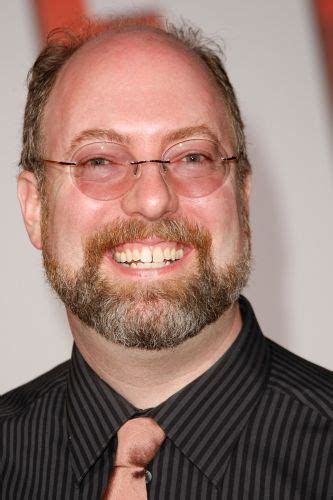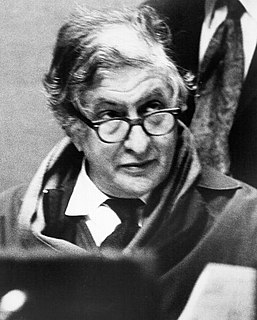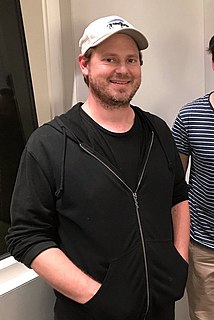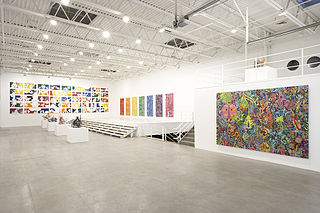A Quote by Roger Ebert
When we go to the movies, we identify with the characters we see. That's why we go to the movies; we have a voyeuristic experience; we have an out of the body experience. The screen is more real than our thoughts are at the moment we are looking at the film and we place ourselves in the place of the people on the screen, and when they behave nobly, it makes us feel noble, when they are sad and when they have lost love, we feel sad; we can identify with that.
Related Quotes
If we only identify with the mortal world, then we identify with a level of scarcity and lack and brokenness, and that will be our experience. But if we shift our experience of self-identification - and this is what enlightenment is - from the body-self to the spiritual-self, then we place ourselves under an entirely different set of possibilities and probabilities.
There is a foundation for our lives, a place in which our life rests. That place is nothing but the present moment, as we see, hear, experience what is. If we do not return to that place, we live our lives out of our heads. We blame others; we complain; we feel sorry for ourselves. All of these symptoms show that we're stuck in our thoughts. We're out of touch with the open space that is always right here.
The representation of gay characters on screen is important for us all to think about because there are sadly too few representations of gay characters on screen in mainstream cinema. If Marvel starts making movies about gay superheroes, then we'll be in a really great place. We're not at that place.
The truth is, when I started to make films, I was terrified. I had a huge difference in what I was writing in the screenplay and what was on the screen after. Sometimes there was a big gap. Now, the more I have experienced, the more I do movies, the more I feel that the dream is closer to the screen. It's coming with experience.
I think it's really cool that videogames are getting more and more sophisticated and believable, and that people who worked on movies are being asked to art direct and design video games and characters, so they look better and better. When I see Jurassic Park on the screen, I predicted that games would be able to create a virtual experience that was just as real as the movies - we're not quite there yet, but it's getting better all the time.
Films are subjective - what you like, what you don't like. But the thing for me that is absolutely unifying is the idea that every time I go to the cinema and pay my money and sit down and watch a film go up on-screen, I want to feel that the people who made that film think it's the best movie in the world, that they poured everything into it and they really love it. Whether or not I agree with what they've done, I want that effort there - I want that sincerity. And when you don't feel it, that's the only time I feel like I'm wasting my time at the movies.
I feel that music on the screen can seek out and intensify the inner thoughts of the characters. It can invest a scene with terror, grandeur, gaiety, or misery. It can propel narrative switftly forward, or slow it down. It often lifts mere dialogue into the realm of poetry. Finally, it is the communicating link between the screen and the audience, reaching out and enveloping all into one single experience.
I feel like my job as a storyteller and director is to create an experience where the audience forgets they're in a cinema and can get lost in the story. Things popping out of the screen call attention to the artifice of what you're doing, so I use 3D as more of a window into a world behind the screen.
I’ve had that kind of experience myself: I’m looking at a map and I see someplace that makes me think, ‘I absolutely have to go to this place, no matter what’. And most of the time, for some reason, the place is far away and hard to get to. I feel this overwhelming desire to know what kind of scenery the place has, or what people are doing there. It’s like measles - you can’t show other people exactly where the passion comes from. It’s curiosity in the purest sense. An inexplicable inspiration.
It's not that people like sad movies that make us feel like, "Oh, my god, what a bummer." We like emotionally moving experiences, where you feel like a slightly different person and you see the world a little different, after you finish. It lets you see your own life, in a different way, and it actually makes you feel really good. And even though there might be sad content making this happen, the feeling that you're left with is one that is quite good, quite hopeful, clarifying and uplifting.
Also for me, I don't make endless movies back to back all the time, I really sort of come to understand and love the characters that I play. And with April and Hanna you sort of go through a weird period of feeling sad about letting them go. Sometimes that takes me a week and sometimes it takes me a couple of months, just so that I can feel I can realign my own thoughts again. I do feel really, really blessed that I've had these opportunities.
My reason [for making my own paint] is to force a real-time experience of the work. Most work today is experienced by reproduction, and more specifically by computer screen, like jpegs, but an RGB simulation of fluorescent will never fully accurately depict some colors. For example, our eyes are a lot more sophisticated than you might assume. You can feel a lot more going on on the surface of a canvas than you can on the surface of a screen.




































